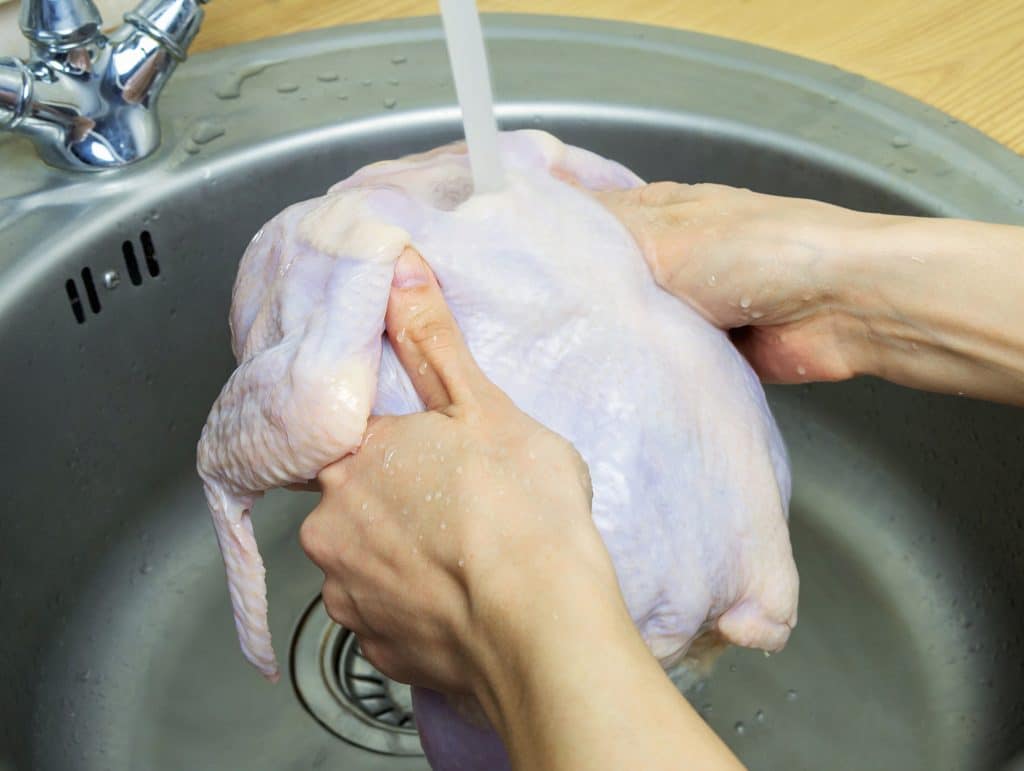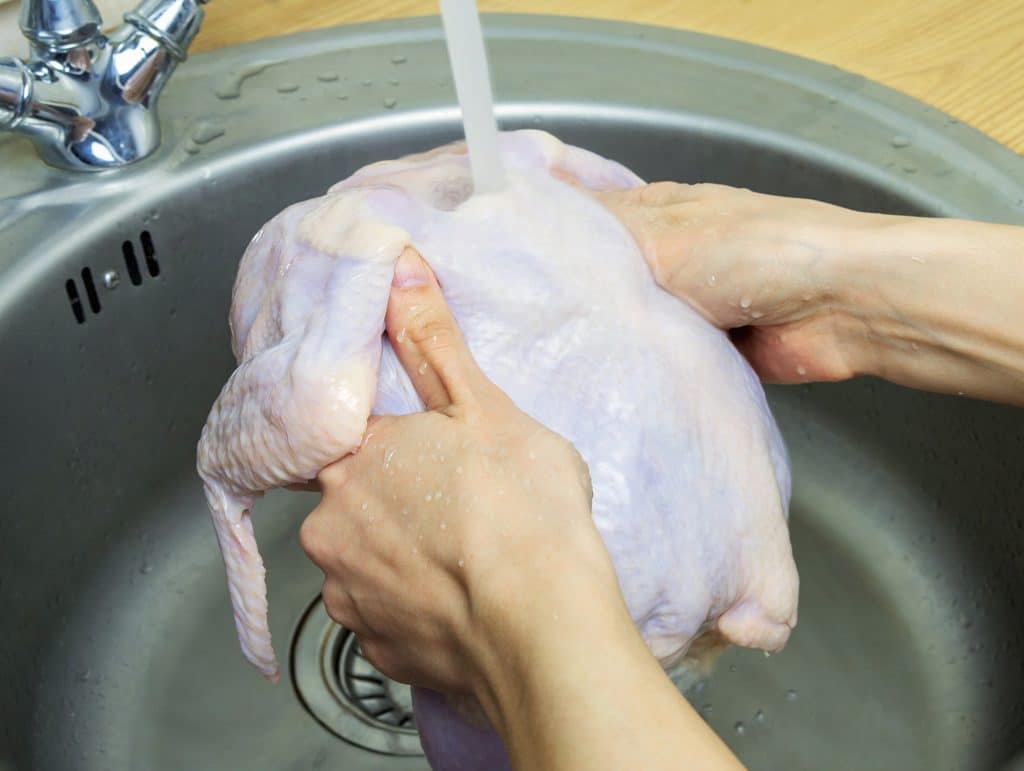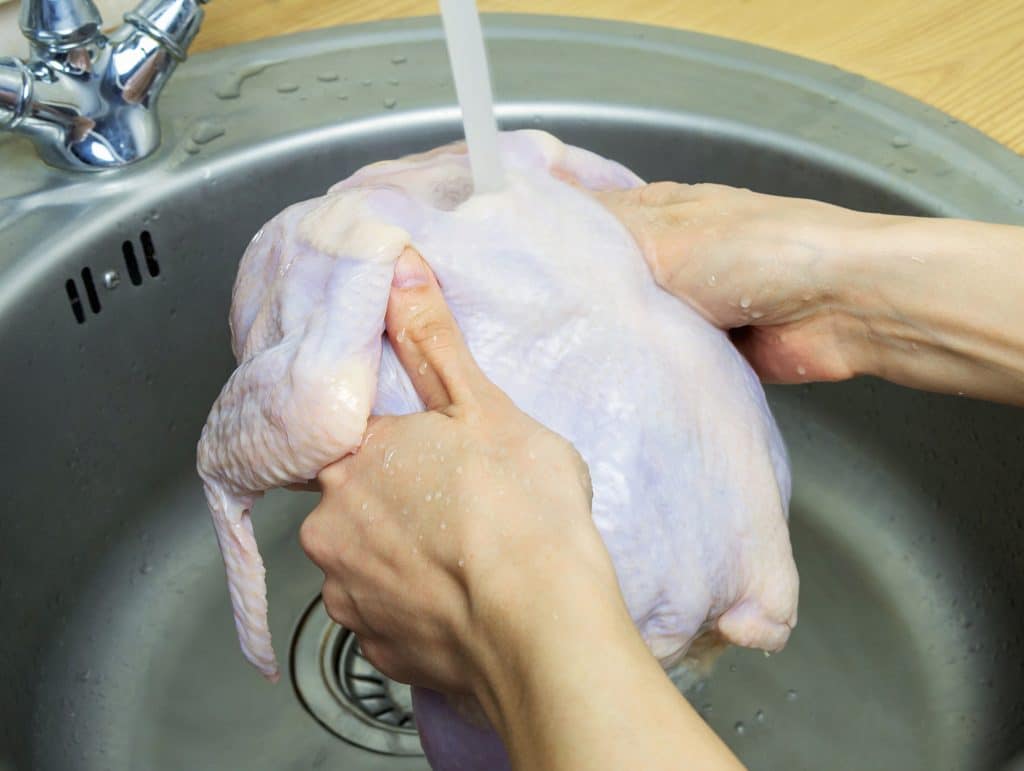When preparing a meat-based meal, a common question arises: should you wash meat before cooking it? Many people have developed the habit of rinsing raw meat under running water, believing this will remove impurities, blood, or bacteria. Here’s a detailed explanation of this divisive practice and the best safety guidelines to follow.

Why Do Some People Still Wash Meat?
Washing meat before cooking is still a common practice. Several reasons explain why many continue to do it:
- A matter of apparent hygiene: Some believe that water can remove dirt, blood, or bacteria present on the surface.
- A cultural tradition: In various cuisines around the world, particularly in Africa, the Caribbean, and Asia, it is common to clean meat with vinegar, lemon, or salt before cooking.
- A fear of microbes: Some consumers assume that unwashed meat is less clean and more dangerous to eat.
However, while this practice may come from a good intention, it is far from effective. Water alone does not eliminate bacteria and can even worsen the situation.
The Dangers of Washing Raw Meat
1. The Spread of Bacteria in the Kitchen
When you rinse a piece of meat under tap water, the droplets projected all around may contain bacteria. These splashes can contaminate the sink, countertops, utensils, and even other foods nearby. This phenomenon is referred to as cross-contamination, which can lead to foodborne illnesses.
Studies show that rinsing raw poultry under water can spread up to 50% of bacteria over a distance of 60 cm around the sink. If these bacteria come into contact with raw vegetables or cooking surfaces, they can be ingested and cause digestive issues or even serious infections.
2. The Ineffectiveness of Washing to Remove Bacteria
Contrary to popular belief, water alone is not sufficient to remove bacteria from meat. Some bacteria adhere strongly to the surface and do not easily detach. Only high-temperature cooking can effectively kill them.
The Best Practices for Clean and Safe Meat
If washing meat before cooking is a bad idea, there are simple and effective steps to ensure food safety without risking the spread of bacteria.
1. Prioritize Thorough Cooking
Cooking is the only sure way to eliminate bacteria present on meat. It is recommended to use a food thermometer to check the internal temperature:
- Poultry: minimum 75°C
- Ground beef: 71°C
- Pork and veal: 63°C (with a resting time of a few minutes)
2. Adopt Strict Hygiene Rules in the Kitchen
- Thoroughly wash your hands with soap after handling raw meat.
- Clean surfaces and utensils with disinfectant after handling meat.
- Use separate cutting boards: one for raw meat, another for vegetables and other foods.
3. Store Meat Properly
- Always keep raw meat in the refrigerator at a temperature below 4°C.
- If the meat won’t be consumed quickly, freezing it helps limit bacterial growth.
- Never refreeze meat that has already been thawed.
The Case of Marinated Meats and Traditional Methods
Some traditional recipes involve rinsing meat or using a marinade made with vinegar or lemon before cooking. While these acidic ingredients can have a partial antibacterial effect, they do not replace proper cooking at the right temperature.
Marinades can help
Do Not Wash Your Meat, but Cook It Properly
Contrary to common belief, washing meat before cooking is a mistake that can compromise the hygiene of your kitchen. Not only does this practice fail to remove bacteria, but it also promotes their spread. The best way to ensure a safe meal is to opt for proper cooking at the right temperature and to adhere to strict hygiene rules.
The next time you’re about to rinse your meat, remember that the heat is your best ally, not water!


